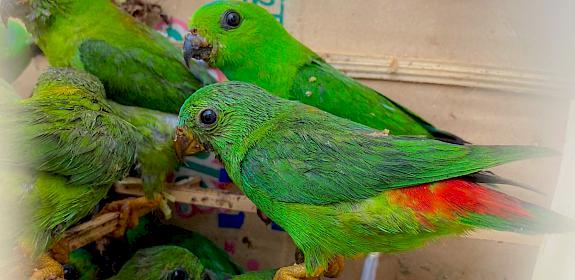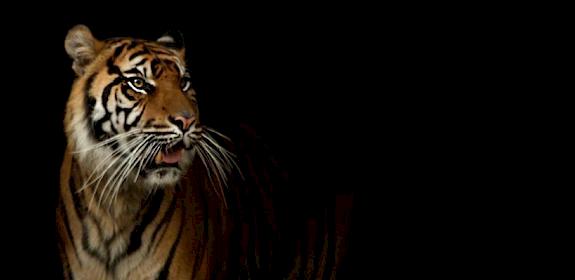Enforcement officers in India receive forensics training
Gandhinagar, India, 25th February 2010—TRAFFIC India, in partnership with the National Tiger Conservation Authority (NTCA), Wildlife Institute of India (WII) and Gujarat Forensic Sciences University (GFSU), has launched a training programme for enforcement officers on the use of forensics in tackling wildlife crime.

It is the first programme of its kind in India and will give participants hands on training in the use of modern scientific tools and techniques that help strengthen wildlife cases and fight wildlife crime.
Twenty officers of the rank of Assistant Conservator of Forest (ACF), Deputy Conservator of Forest (DCF) and Conservator of Forest (CF) are attending the course.
The programme was inaugurated by Mr S. S. Khandwawala, Director General of Police, Govt. of Gujarat while Mr Pradeep Khanna, Principal Chief Conservator of Forest, Gujarat was the Guest of Honour. Other dignitaries present at the inaugural session included Mr Samir Sinha, Head of TRAFFIC India, Dr J. M. Vyas, Director General, of GFSU and Dr M. S. Dahiya, Director of the Institute of Forensic Sciences, GFSU.
Samir Sinha, Head of TRAFFIC India commented: “This training will give participants a comprehensive understanding of the present scenario of wildlife crime and trade in India and its implications for conservation of species in the wild as well as a thorough background knowledge of the use of modern forensic tools and techniques in strengthening wildlife enforcement.
“Wildlife forensics is an important tool for managing wildlife crime and is an emerging science with a number of institutions and individuals working on it internationally. Programmes like this provide an opportunity to share knowledge and experience of the latest tools and techniques in this field and their potential for supporting conservation in India.”
Wildlife crimes, including poaching and illegal trade in animals and plants and parts thereof, threaten a number of Indian wildlife species.
Reports indicate that wildlife crime is on the increase in India, although the conviction rate for offences remains as low as less than 2%. It is hoped that increased use of forensics in wildlife crime cases will help to secure more convictions.
The training module deals with identification of ballistics, nano-technology, evidentiary value of scientific opinion in a court of law, interrogation techniques, documentation of wildlife cases, medico-legal examination use in wildlife investigation, cyber forensics and wildlife species identification using wildlife forensic techniques.
Experts conducting the training programme include Dr M. S. Dhayia, Director of the Institute of Forensic Sciences, GFSU; Mr Sudhir Mishra, Advocate Supreme of the Court of India; Mr S. G. Gokani, Registrar of the Gujarat High Court; Dr S. P. Goyal of the Wildlife Institute of India; Dr Y. K. Aggarwal, Director of R&D, GFSU; Mr Samir Sinha, Head of TRAFFIC India and several other experts.
The five-day workshop began on 22 February at the GFSU in Gandhinagar, Gujarat, and will run until Friday.




